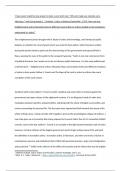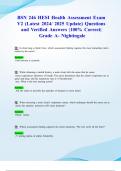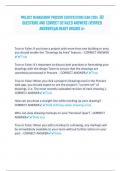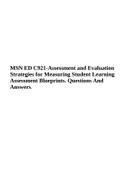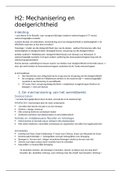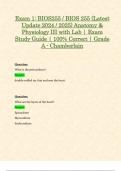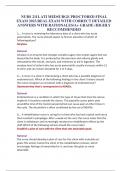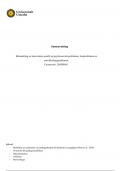Essay
How can two Enlightenment and/or Romantic texts by different visual artists or writers studied on the module be understood as ‘satire’?
- Course
- Institution
‘I have never made but one prayer to God, a very short one: “Oh Lord, make our enemies very ridiculous.” And God granted it…’ (Voltaire, ‘Letter to Etienne Damilaville’, 1767). How can two Enlightenment and/or Romantic texts by different visual artists or writers studied in the module...
[Show more]
